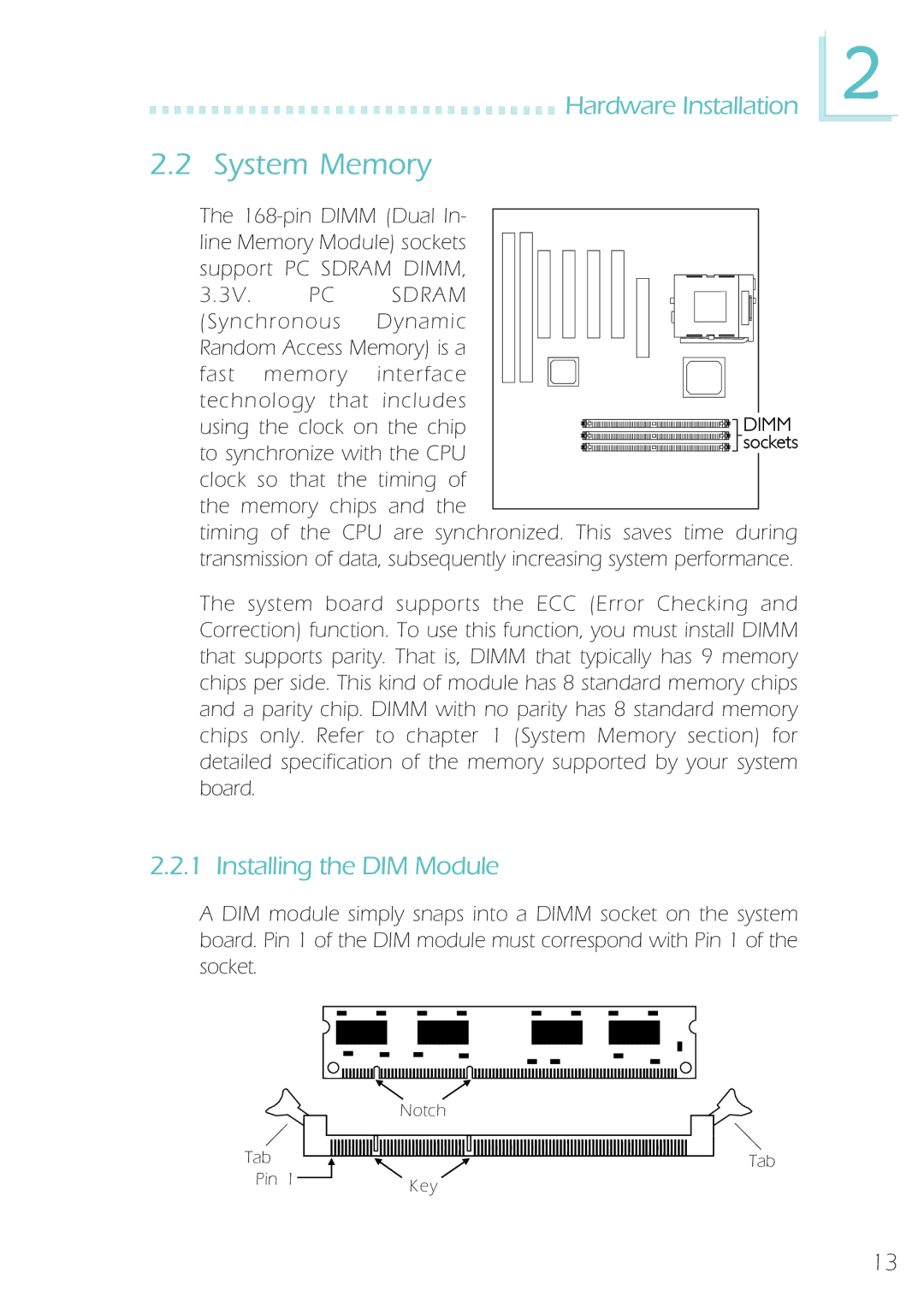
































 Hardware Installation
Hardware Installation
2.2 System Memory
The
3.3V. PC SDRAM (Synchronous Dynamic
Random Access Memory) is a fast memory interface
technology that includes
using the clock on the chip to synchronize with the CPU clock so that the timing of
the memory chips and the
timing of the CPU are synchronized. This saves time during transmission of data, subsequently increasing system performance.
The system board supports the ECC (Error Checking and Correction) function. To use this function, you must install DIMM that supports parity. That is, DIMM that typically has 9 memory chips per side. This kind of module has 8 standard memory chips and a parity chip. DIMM with no parity has 8 standard memory chips only. Refer to chapter 1 (System Memory section) for detailed specification of the memory supported by your system board.
2.2.1 Installing the DIM Module
A DIM module simply snaps into a DIMM socket on the system board. Pin 1 of the DIM module must correspond with Pin 1 of the socket.
Tab
Pin 1
Notch
Tab
Key
13
